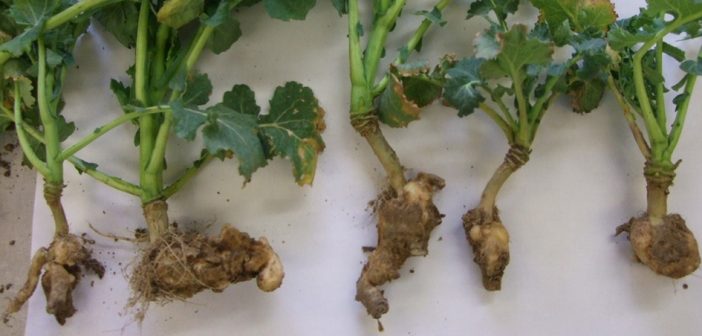PGRO is now offering commercial growers an early indication of clubroot risk to brassica crops including vegetables and oilseed rape.
“PGRO is offering a rapid molecular test for the detection and quantification of the brassica clubroot pathogen Plasmodiophora brassicae in the soil that can be used as a risk assessment tool by growers,” says Roger Vickers, PGRO’s Chief Executive. “The test is proving invaluable to close rotation intensive vegetable producers as well as to growers of oilseed rape – which is the most commonly grown brassica crop in the UK.
“Clubroot infection can cause significant, or even complete, crop losses when infection is severe, and is exacerbated by close rotations. Plasmodiophora brassicae can persist in soils for at least 15 years so cannot be managed practically by extending rotations.”
Dr Lea Herold, PGRO Plant Pathologist explains that the test, which was first launched last summer, determines the number of pathogen resting spores per gram of soil. “The higher the numbers of spores per gram soil the higher the risk of disease development,” she says. “Growers receive a risk indicator for their soil, with the level of risk defined on a 1-3 scale (slight, moderate or severe) according to infection levels identified as set out in AHDB Horticulture Project CP 099a.”

The post PGRO offers rapid clubroot test appeared first on Hort News